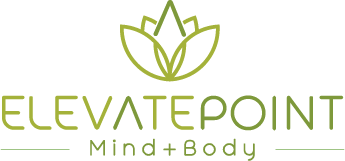Depression is a common mental illness that impacts many. The World Health Organization estimates that an estimated 6% of adults suffer from depression. Depression, left untreated, can negatively impact virtually all areas of your life for the worse: from your relationships, health, mental well-being, quality of life, and more. Fortunately, you don’t have to suffer in silence with your depression– help is available!
At Elevate Point, we are committed to helping patients heal and lead healthier lives. Whether you are struggling with depression, anxiety, drug addiction, or another mental health disorder, we are here to help transform your life for the better. We offer a comprehensive range of mental health and addiction treatment plans to support your recovery. Contact us today to learn more about how we can help you lead a healthier, happier life.
How Does Ketamine Work for Depression
Depression, left untreated, can be a debilitating disease that impacts various aspects of your life for the worse. Depending on the severity of your depression, ketamine works to provide relief for those struggling with depression. Ketamine works by targeting a neurotransmitter called glutamate to help patients struggling with depression find relief. It works by being administered to the patient (typically via nasal spray or IV), and most patients can start noticing improvements to their symptoms within a few hours.
Ketamine treatments are temporary in relieving depression symptoms as the medication begins to wear off. Therefore, it is important to know that, typically, ketamine treatments are done every few weeks to help with maintaining depression symptom relief.
How Long Does Ketamine Work for Depression
Now that you know more about ketamine treatments and how they can help improve depression, it is important to understand the question: “how long does ketamine work for depression”. The answer is typically a few weeks. Ketamine treatments work to temporarily improve depression symptoms.
While ketamine depression will not cure depression, it can be an effective treatment option for some individuals struggling with more severe forms of depression. Not only is this approach fast-acting, but it can also be an alternative for patients who have tried other medications or treatment options before without much effectiveness at reducing their depression symptoms.
Help Is Available
Now you know more about the question “how long does ketamine work for depression”. Whether you are struggling with depression, anxiety, or another mental illness, at Elevate Point, we are here to help you every step of the way so that you can find relief from your depression symptoms and improve your health and quality of life for the better.
Our expert team of addiction specialists and mental health professionals at Elevate Point are here to help you heal and transform your life for the better. We understand that each patient’s road to recovery is uniquely different. That’s why we offer a wide range of mental health treatment and addiction treatment options to best meet your unique recovery needs. Gone are the days of suffering in silence with your mental illness– help is available at Elevate Point.
Ready to progress in your recovery? Contact us today to learn more!
Frequently Asked Questions
How fast does ketamine work for depression?
Ketamine treatments can be a quick and effective way to start finding relief for your depression symptoms. Most patients who receive ketamine treatments for depression typically find relief as soon as a few hours after receiving the treatment. Although the treatment is temporary in reducing your depression symptoms, it can be highly beneficial for certain patients. This is especially true if you have tried various other depression treatment options without much success and/if you are struggling with a severe form of depression.
What are other treatment options to help with depression?
While ketamine treatments can be effective for some individuals in relieving depression symptoms, it is important to understand that there are a wide variety of depression treatment options available. For example, there are a number of non-medication treatment options, like talk therapy or group therapy that can greatly help improve patients’ symptoms. There are also a number of other potential depression medications your doctor may prescribe to help you reduce symptoms.
Practicing healthy lifestyle habits is also a simple but oftentimes overlooked area when it comes to improving depression. For instance, eating a healthy diet, getting consistent quality sleep each night, and prioritizing exercise in your daily life can go a long way in improving your overall mood, health, and quality of life.
What are common signs and symptoms of depression?
Sometimes it can be difficult to spot whether you are struggling with depression. Depression is more than just having a bad day. Depression involves persistent feelings of helplessness, worthlessness, and low mood and energy levels that can negatively impact other areas of your life. From isolating yourself from friends and family to avoiding activities you once enjoyed, and negatively impacting your mood and productivity levels, depression left untreated hurts all areas of your life.
Unsure if you are struggling with depression? Below are several signs and symptoms to look out for:
- Low energy levels
- Decrease in appetite
- Significant weight loss or weight gain
- Loss of interest in activities you once enjoyed
- Low mood
- Significant changes in sleep (difficulty falling asleep or oversleeping)
- Isolating from friends and family members
- Abusing drugs or alcohol to cope with your symptoms
- And more
Unfortunately, failure to treat your depression not only hurts your health and quality of life, but it can also increase your risk of turning to unhealthy coping strategies to manage your depression symptoms, such as abusing drugs and alcohol. Abusing drugs and alcohol to cope with your depression symptoms not only raises your risk of developing an addiction, but it also temporarily relieves symptoms and does not address the root cause of your depression.
If you are struggling with a drug addiction and mental illness, it is critical you consider seeking dual diagnosis treatment to help treat both conditions at the same time. Otherwise, failure to treat both conditions can increase your potential risk of relapsing.

